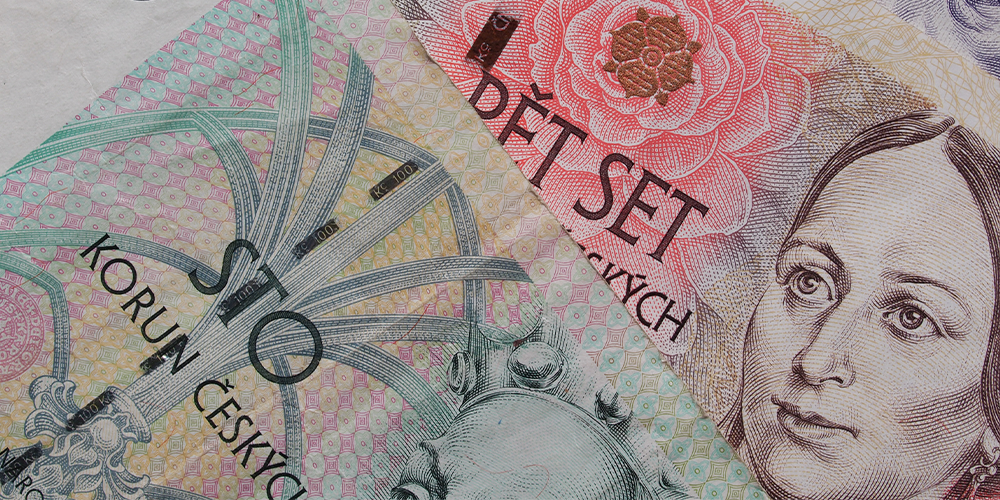Two central banks in central Europe have surprised markets by hiking their policy rates. The Czech National Bank increased its rate by three ‘notches’, or 0.75%, on 30 September. The National Bank of Poland followed on 6 October, though only increasing its rate by the relatively modest 0.4%.
But they are not alone. Other central banks in the region are taking action against inflation too. This contrasts starkly with the timidity of the European Central Bank and other large economy monetary policy authorities. These stress, instead, the temporary character of current inflationary pressures and prefer to use forward guidance to set expectations about any future return to higher interest rates.
Though both the CNB and NBP surprised markets, they did so in different ways. The CNB board has been consistently vocal in its intentions to raise its policy rate by more than 25 basis points for the first time this millennium. It had previously communicated that the late September hike would be about two notches. However, hawks in the policy planning meeting prevailed, given the size of inflationary surprises and the strong feeling that, as inflation expectations begin to diverge from the target, more will be needed in the future. One of the golden rules of Czech monetary policy-making is that if the majority of the board feels that the outcome of forthcoming policy meetings is certain, it is better to take action in one fell swoop than in piecemeal fashion. The 30 September decision was a result of this.
On the other hand, the NBP has been communicating its complacency towards inflation and unwillingness to hike significantly, even up to the beginning of October. But Poles are much less willing to put up with rising prices than in the past, which has put considerable pressure on Warsaw politicians. Mateusz Morawiecki, the Polish prime minister, commented on inflation expectations and made clear his desire that the NBP should act as against price increases on the very day in which the central bank pulled its rate hiking surprise. One can only speculate that he may have influenced the monetary policy committee that had previously prioritised the price of financing Polish debt.
More importantly, the Czech and Polish central banks are not an exception in central European. The Hungarian Magyar Nemzeti Bank and its Romanian counterpart, the Banca Națională a României, have already started the process of policy normalisation and tightening. Only the Bulgarian and Croatian monetary authorities have remained passive. This can be explained by the fact that the monetary policy setup in Bulgaria is based on a currency board, while the Croatian central bank is more occupied with accession issues as it tries to stick to a firm timeline in its bid to join the euro area.
The aggressive nature with which these ‘new’ European Union central banks fight inflation can be explained by several factors. They entered the Covid-19 pandemic in good economic shape and with hot labour markets. The fact that they were successfully able to use fiscal tools, debt moratoria and, with the exception of Czechia, quantitative easing to aid their citizens and industry in the pandemic without great consequences for fiscal stability helped keep their economies operating at peak capacity. Significant falls in their economic output reflected hits to supply, rather than demand.
Consequently, these economies now face more domestic price pressures. At the same time, domestic economy policy elites are very much aware of the political costs of financial instability, associated with periods of higher inflation which citizens are not ready to accept after two decades of price stability. In addition, the fiscal situation in these economies, in terms of state indebtedness, is a lot better than in the larger economies of the euro area. Therefore, authorities do not need to pay as much attention to servicing state debt in post-Covid times and are able to prioritise price stability.
Hot labour markets also help, making the potential loss of competitiveness following exchange rates strengthening due to widening interest rate differentials with the euro area less of an issue. Any such exchange rate appreciation would, at the same, time alleviate imported price pressures stemming from post-Covid bottlenecks as well as energy price increases stemming from green policies in most developed economic theatres.
The ‘new’ EU monetary authorities are naturally more prone than the ECB to tighten policy and increase interest rates. Most political elites in these countries are aware of how unpopular higher inflation is among their electorates. The Czech central bank, with its ingrained history of independence and focus on price stability, may lead the pack, but it has been followed by its peers. Central Europe should brace for more interest rate hikes.
Miroslav Singer is Director of Institutional Affairs and Chief Economist at Generali Group and a former Governor of the Czech National Bank.
